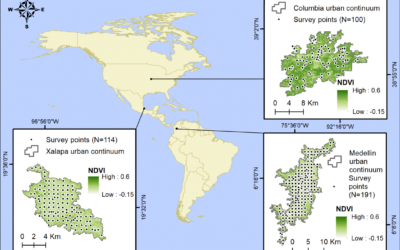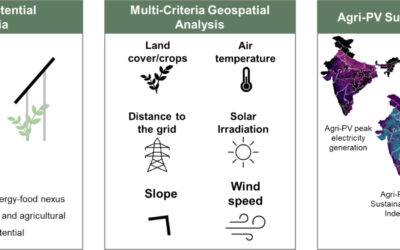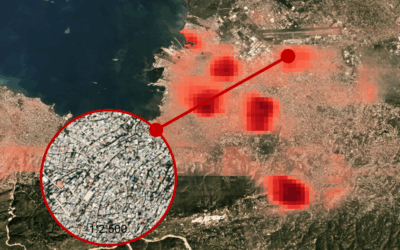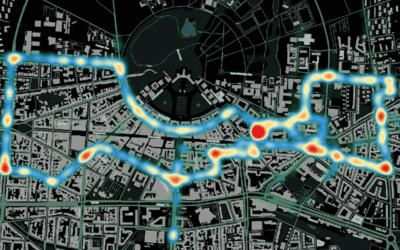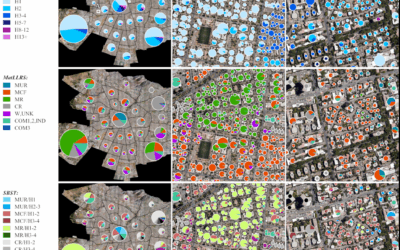New publication on object detection models for locating and classifying flower‑visiting arthropods in images
Researchers from the Earth Observation Center (EOC) of the German Aerospace Center (DLR) in Oberpfaffenhofen, the Department of Community Ecology of the Helmholtz Centre for Environmental Research (UFZ) in Halle, the German Centre for Integrative Biodiversity Research (iDiv) in Halle-Jena-Leipzig, the Institute of Biology of the Martin Luther University Halle-Wittenberg in Halle and our Earth Observation Research Cluster of the University of Würzburg teamed up for a study on object detection models for locating and classifying flower‑visiting arthropods in images. The paper titled “YOLO object detection models can locate and classify broad groups of flower‑visiting arthropods in images” was just published in the Scientific Reports journal by Thomas Stark, Valentin Ştefan, Michael Wurm, Robin Spanier, Hannes Taubenböck and Tiffany M. Knight. This study has been conducted as part of the project “Pollination Artificial Intelligence (PAI)” funded by the Helmholtz AI initiative (Information & Data Science) Pollination Artificial Intelligence (ZT-I-PF-5-115), lead by Prof. Tiffany M. Knight and Prof. Hannes Taubenböck.
Here is the abstract: Development of image recognition AI algorithms for flower-visiting arthropods has the potential to revolutionize the way we monitor pollinators. Ecologists need light-weight models that can be deployed in a field setting and can classify with high accuracy. We tested the performance of three deep learning light-weight models, YOLOv5nano, YOLOv5small, and YOLOv7tiny, at object recognition and classification in real time on eight groups of flower-visiting arthropods using open-source image data. These eight groups contained four orders of insects that are known to perform the majority of pollination services in Europe (Hymenoptera, Diptera, Coleoptera, Lepidoptera) as well as other arthropod groups that can be seen on flowers but are not typically considered pollinators (e.g., spiders-Araneae). All three models had high accuracy, ranging from 93 to 97%. Intersection over union (IoU) depended on the relative area of the bounding box, and the models performed best when a single arthropod comprised a large portion of the image and worst when multiple small arthropods were together in a single image. The model could accurately distinguish flies in the family Syrphidae from the Hymenoptera that they are known to mimic. These results reveal the capability of existing YOLO models to contribute to pollination monitoring.
Here is the link to the full paper: https://www.nature.com/articles/s41598-023-43482-3#Sec11




